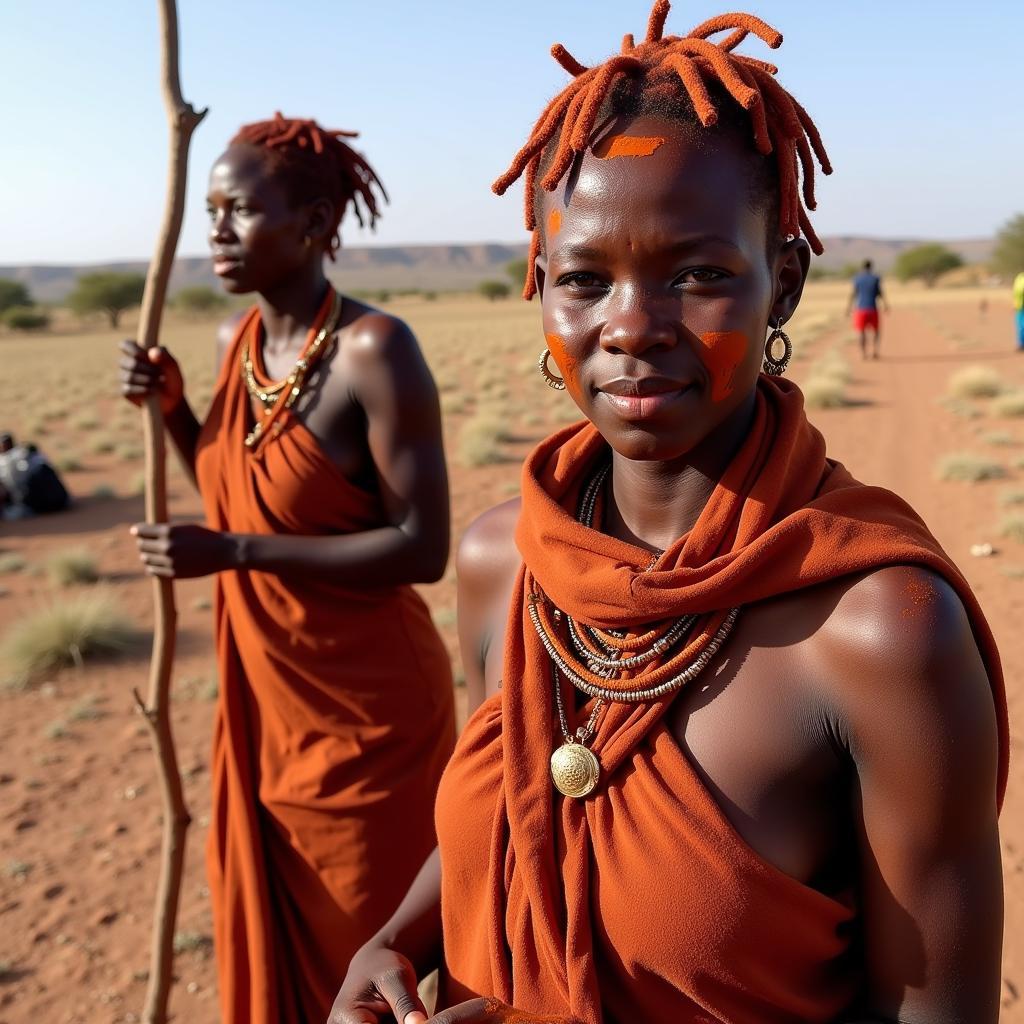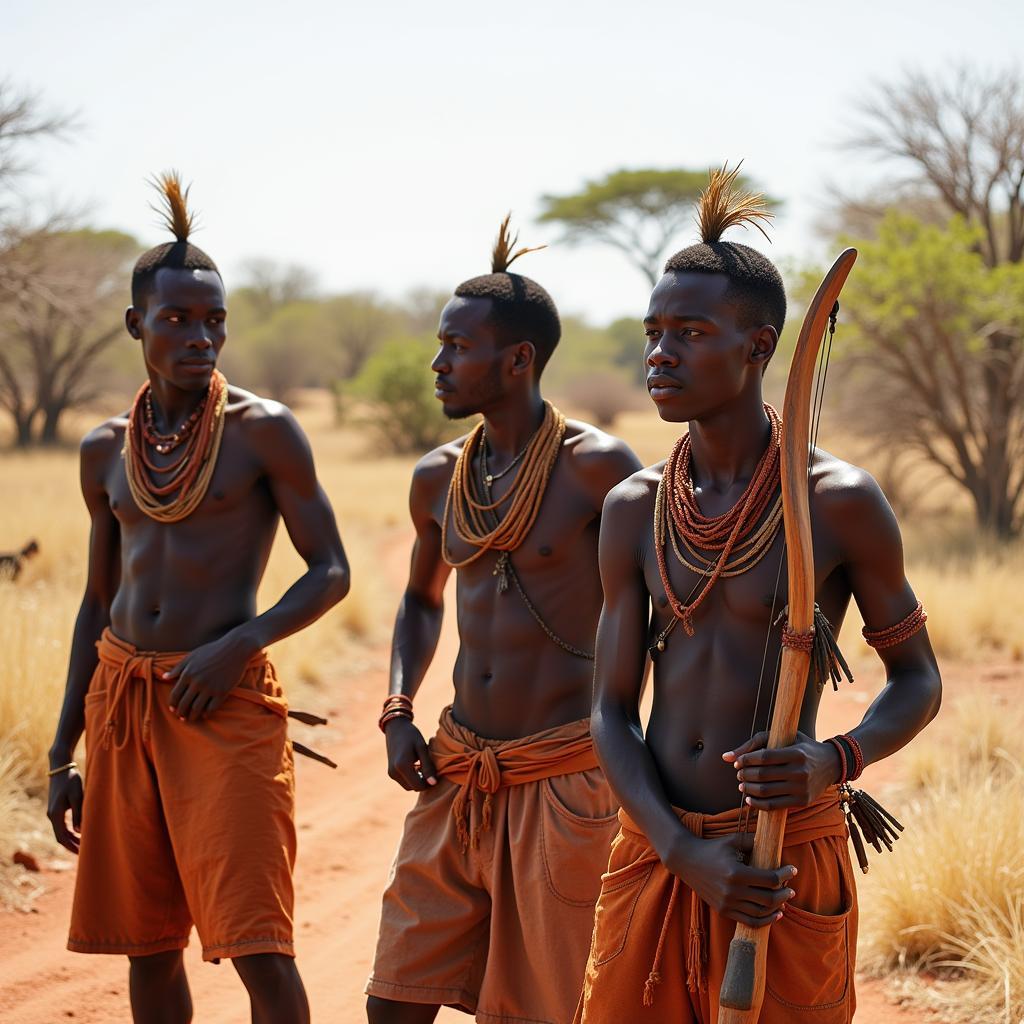Exploring the Rich Tapestry of African Indigenous Tribes
Africa, a continent of vibrant diversity, is home to a multitude of indigenous tribes, each with its own unique customs, traditions, and stories. These tribes, often living in harmony with nature, represent a rich tapestry of human experience, offering valuable insights into our shared past and the potential for a sustainable future. This article delves into the fascinating world of African Indigenous Tribes, exploring their diverse cultures and the challenges they face in the modern world. We’ll examine their unique traditions, languages, and social structures, shedding light on their resilience and adaptability. Check out more information about African tribe people.
The Diversity of African Indigenous Tribes: A Cultural Kaleidoscope
From the nomadic pastoralists of the Sahara to the hunter-gatherers of the Congo Basin, African indigenous tribes represent a vast spectrum of human adaptation. Their languages, often unrelated to major language families, are as diverse as their cultures. These languages, often passed down orally, hold a wealth of knowledge about their history, beliefs, and intricate relationship with the environment. The social structures of these tribes vary significantly, from egalitarian societies where decisions are made collectively to hierarchical systems with chiefs and elders. These diverse social organizations reflect their unique adaptations to their specific environments and historical circumstances.
 Himba Tribe of Namibia
Himba Tribe of Namibia
Many tribes maintain a deep spiritual connection to their ancestral lands, viewing nature not just as a resource, but as a sacred entity. Their rituals and ceremonies often revolve around the cycles of nature, reflecting their profound understanding of the interconnectedness of all living things. This spiritual connection often translates into sustainable practices, ensuring the preservation of their environment for future generations.
Challenges and Resilience in the Modern World
African indigenous tribes face numerous challenges in the modern world, including encroachment on their ancestral lands, climate change, and the pressure to assimilate into mainstream society. Globalization and modernization often threaten their traditional way of life, forcing them to adapt to new economic and social realities. Despite these challenges, many tribes have demonstrated remarkable resilience, striving to preserve their cultural heritage while navigating the complexities of the 21st century.
“Indigenous knowledge, particularly in areas like sustainable resource management, is invaluable,” says Dr. Anika Nkosi, an anthropologist specializing in African cultures. “These communities have lived in harmony with their environment for centuries, and their practices offer crucial lessons for the rest of the world.” Preserving their languages and cultural practices is not just about safeguarding their heritage; it’s about ensuring the survival of invaluable knowledge that could hold the key to a sustainable future.
Understanding African Indigenous Tribes: Why it Matters
Understanding the diversity and complexity of African indigenous tribes is essential for promoting cross-cultural understanding and fostering a more equitable world. Their stories challenge our preconceived notions about culture and society, offering alternative perspectives on how we can live in harmony with each other and the planet. Learning about their resilience and adaptability in the face of adversity can inspire us to address global challenges with greater creativity and determination.
 San Bushmen in Botswana
San Bushmen in Botswana
Preserving Cultural Heritage for Future Generations
Efforts to preserve the cultural heritage of African indigenous tribes are crucial. This includes supporting initiatives that promote language revitalization, cultural tourism that respects their traditions, and legal frameworks that protect their ancestral lands. By working together, we can ensure that these vibrant cultures continue to thrive, enriching the global tapestry of human experience. Learn more about South African jewellery. You can also check out some exciting African Indian tribal tour opportunities.
Conclusion
African indigenous tribes represent a vital part of humanity’s cultural heritage. Their diverse traditions, languages, and deep connection to the land offer invaluable lessons for the world. By understanding their challenges and supporting their efforts to preserve their cultures, we can contribute to a more just and sustainable future for all. If you’re interested in learning more about African girl names with Mea, check out our dedicated article.
FAQ
-
What are some of the most well-known African indigenous tribes? Some well-known tribes include the Maasai, Zulu, Himba, San, and Yoruba, among many others.
-
How many indigenous tribes are there in Africa? It is difficult to provide an exact number due to variations in definitions and ongoing research, but there are hundreds of distinct indigenous groups across the continent.
-
What are the major threats facing African indigenous tribes today? Major threats include land encroachment, climate change, loss of traditional livelihoods, and pressure to assimilate.
-
How can I learn more about specific African indigenous tribes? Numerous resources are available, including books, documentaries, and reputable online sources. Always ensure you are accessing information from respectful and accurate sources.
-
What is being done to protect the rights and cultures of indigenous tribes in Africa? Various organizations and governments are working to protect their rights and promote cultural preservation through legal frameworks, community-based initiatives, and international collaborations.
Common Situations and Questions
Scenario: A traveler wants to visit a specific tribe and learn about their culture.
Question: How can I ensure my visit is respectful and doesn’t negatively impact the community?
Answer: Research responsible tourism operators who prioritize cultural sensitivity and community benefit. Ensure you obtain permission before visiting and respect their customs and traditions.
Scenario: A researcher wants to study the language of an indigenous tribe.
Question: How can I approach the community and ensure my research is ethical?
Answer: Consult with the community leaders and obtain their informed consent before conducting any research. Ensure your research benefits the community and respects their intellectual property rights.
Further Exploration
Explore other articles on our website related to African culture and travel. You can find more information on specific tribes, traditional arts and crafts, and conservation efforts.
Contact Us
For any assistance or inquiries, please contact us: Phone: +255768904061, Email: kaka.mag@gmail.com, or visit our office at Mbarali DC Mawindi, Kangaga, Tanzania. We have a 24/7 customer service team available to assist you.


